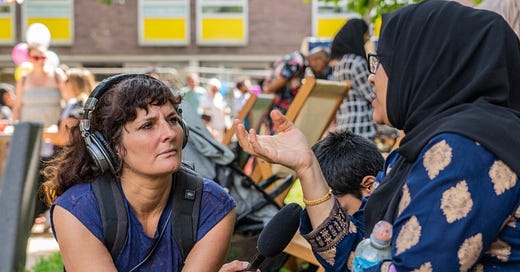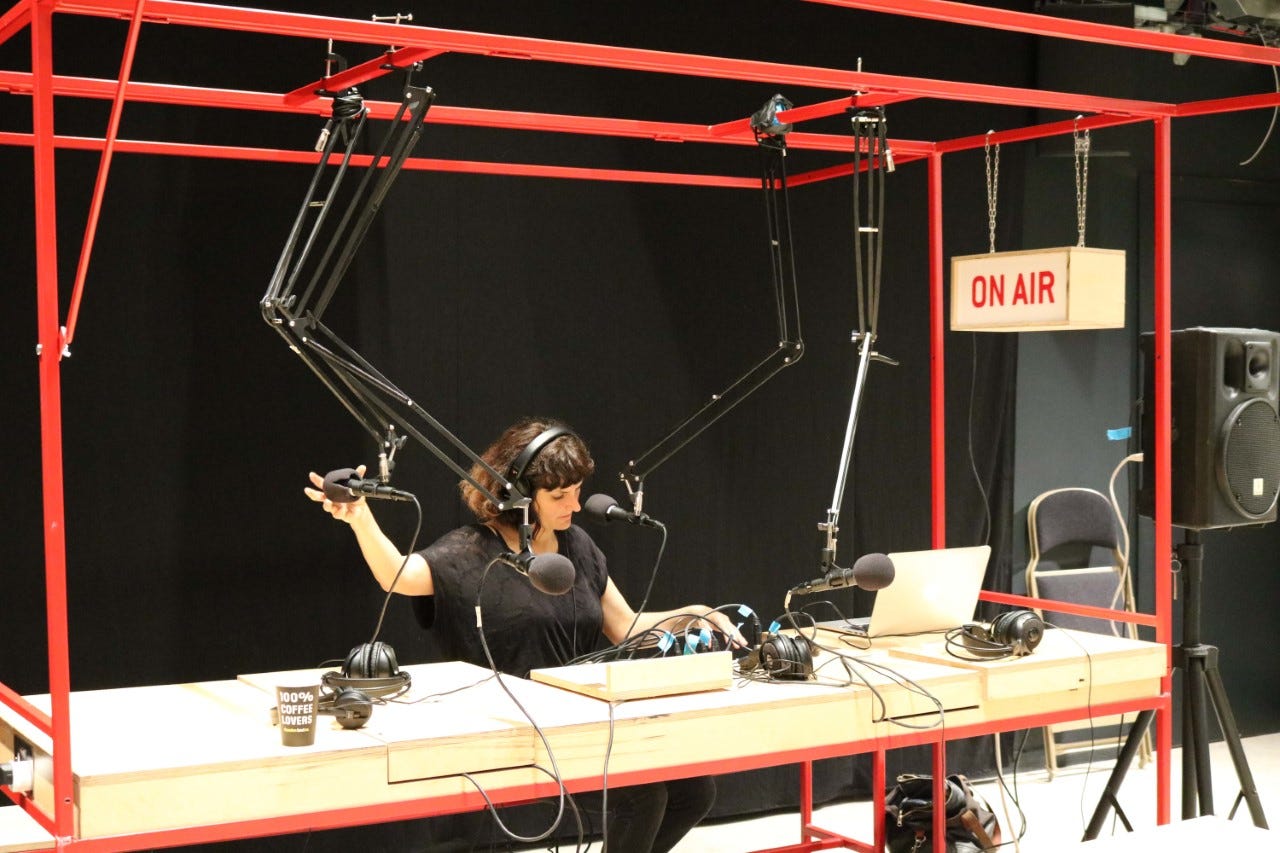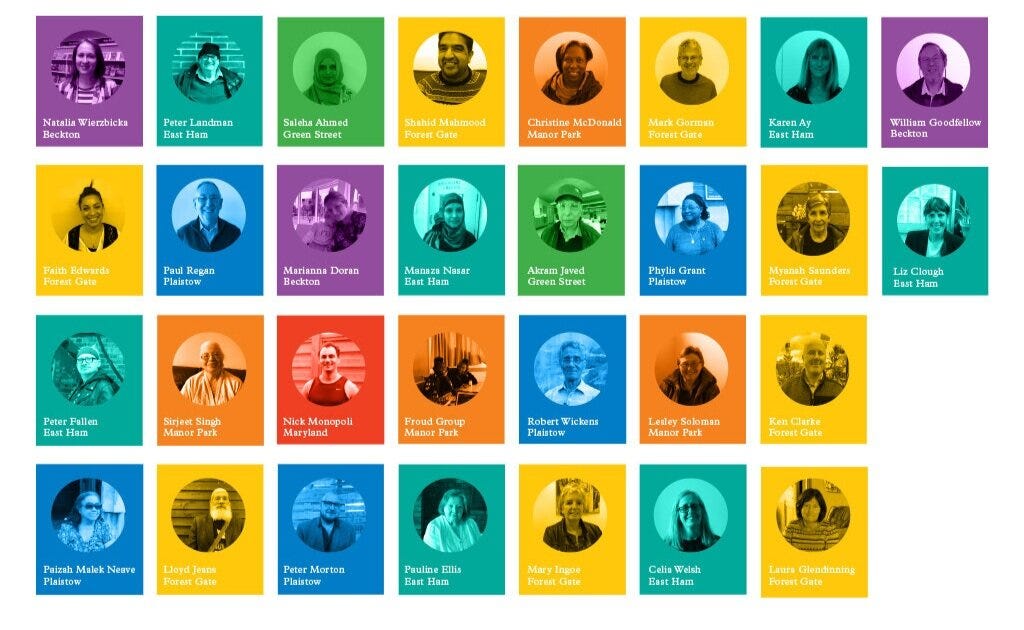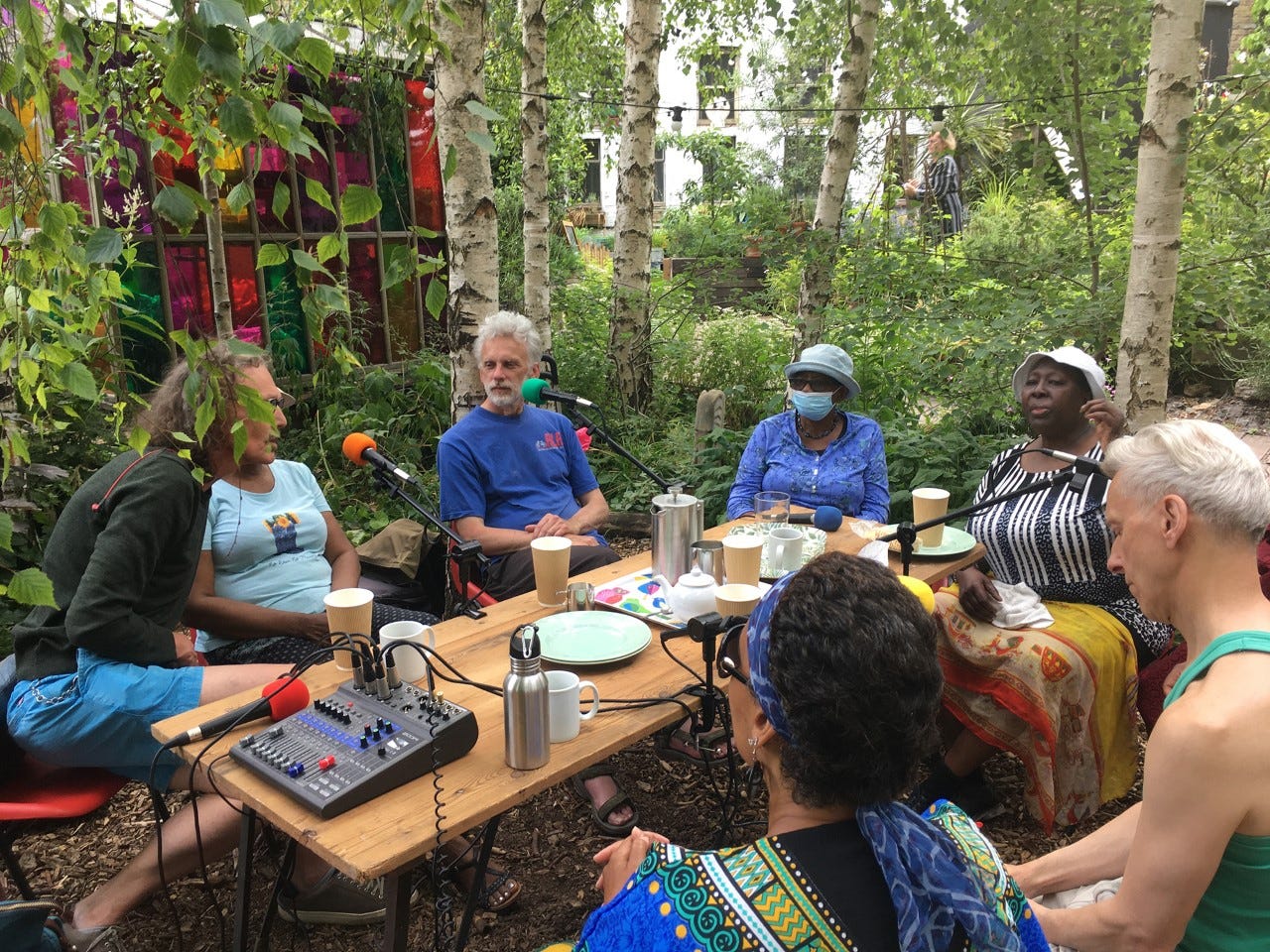I’ve written before in the newsletter about how I feel restricted by the fact that every idea ‘should’ begin with a strong news peg. We’re journalists, I get it, but sometimes I feel that great ideas are slipping through my fingers because they aren’t linked to a current event.
What abstract, experimental, lovely pieces of sound would we make if we weren’t governed by the almighty news peg? And what other purposes might this audio serve?
Lucia Scazzocchio is an audio maker working in a completely different way. Her company, Social Broadcasts, makes productions that blend audio with community engagement and participatory art. They’re usually place-based and in montage form.
Like the project she made with an art collective: an award-winning series of audio postcards about climate change and coastal living. Or when she was commissioned by a social enterprise to create an audio portrait of a day at a London train station: the station as the set, the passengers as protagonists.
Here Lucia writes about how to work collaboratively with communities, breaking out of formats, and why she’s not that concerned with audience numbers.
I’m always trying to mix worlds - like introducing traditional radio/podcast people to sound artists; or audio drama people to field recordists.
About 10 years ago, I started an hour-long weekly magazine show at a local community radio station. Through that work, I met a group of architects who were doing a regeneration project in East London; they’d created this really beautiful mobile radio station that doubled as a market stall.
I began running that every Saturday: a radio station in a market. It was an amazing platform, because it meant people in the area were having conversations together that they weren’t having elsewhere: like local businesses chatting to the mayor. It was quite contentious: lots of emotions about the future of the area. And we broadcast it live.
It really got me thinking about how radio can be used as a tool to get people talking. That’s where Social Broadcasting started.
The work is collaborative
Social Broadcasting is a methodology I developed: a combination of participatory art practice, community engagement, and radio. Through my audio company, Social Broadcasts, we bring those three things together to enable voices that aren’t normally heard to have a platform.
It’s about bringing a wide range of voices together on one topic – more people and more diversity than you would typically hear in standard journalism. It platforms people who think they aren’t interesting or don’t have a voice.
This method of working is also an amazing way to do community research or consultation. You get much better feedback from a community by asking them to be part of a radio art piece, than asking them to fill out a survey for example. My productions are typically montage-based, and I’m not pushing a particular point of view or agenda.
There’s an element of ownership too: the work is usually collaborative. There’s a feedback process, and participants tell me what’s important to them. It’s about building a relationship with people and really spending time in a place; the work is very place-based.
Audio as community regeneration
Let’s take an example. ‘Shape Newham’ was a project led by the local council and an architecture practice to revitalise Newham in east London. I interviewed about 40 different people about their relationship with where they live. I also trained people up to interview people they know. Then we edited them together – it was a big collaborative project that happened over a year.
The next stage was listening events, where everyone who is involved in these projects came together and listened to their final piece. That sparked a whole new conversation. I also created a mini-site with participants’ photographs matching their audio portrait. All of this was then fed into the local council’s research to find out what people wanted in their community.
Not interested in audience numbers
Another aspect of this work that’s different to more traditional ways of making radio is the relationship with the audience. I’m not necessarily interested in audience numbers. I’m more focussed on participation and longevity. The work often becomes a historical archive of a particular moment. So it might not reach a big audience, but if the participants themselves are listening to it, then for me that’s just as important.
What I enjoy most about this kind of work is the surprise element. Often I go in having no idea what the story is, or what’s going to emerge. Often there’s no ‘big story’ – it’s more about allowing things to reveal themselves. We all make assumptions about people – and it’s wonderful to be surprised.
I also love facilitating opportunities to go a bit deeper. I think we all get stuck in surface-level chit chat. It’s about being pushed into that place. It’s sometimes uncomfortable but often really interesting.
Audio can be many, many things
I definitely think there’s more scope for audio producers to be making place-based work. Audio can be many, many things. You don’t have to get stuck in one format - there are different routes.
After having lots of conversations with other independent producers, I saw there was a real need for a curated platform that features independent work. So I launched Transmitter (xmtr.fm): curated sonic storytelling that you won’t hear on mainstream channels. Like Social Broadcasts, it’s a space for voices we might not hear elsewhere. Listeners can go on the site, listen to things and get inspired – there’s a sort of serendipity, like on a radio station.
I feature new producers as well as veteran makers: work from the archives that has long been buried but deserves another listen. I want it to feel like a community space, where like-minded people can share work. Hit play and see what happens.
Transmitter is accepting submissions.
Classes
🎚️ Exploring Reaper Editing And Mixing Techniques ~ intermediate Audiotrain class ~ 13 January
🎚️ New classes from Multitude, including sustainable podcasting, mixing and how to make a living ~ starts 16 January
🎚️ Salt: make your first audio piece ~ 18 January - 8 February
🎚️ 7 Days of Sound ~ online music tech workshops for women, non-binary and trans folk worldwide ~ 27 January - 2 February
Jobs
🎧 Senior Producer, More Perfect ~ WNYC ~ New York
🎧 Podcast Producer ~ Thee Quaker Project ~ remote, US-based
🎧 Freelance Story Scout ~ Spooked, Sound Judgment ~ remote
🎧 Associate Producer ~ American Public Media ~ remote







